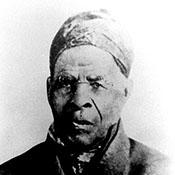 The first significant waves of immigration of Muslims to North America came through three centuries of the slave trade. In the midst of brutal treatment and forced conversion to Christianity, many African Muslims preserved their religious identities.
The first significant waves of immigration of Muslims to North America came through three centuries of the slave trade. In the midst of brutal treatment and forced conversion to Christianity, many African Muslims preserved their religious identities.
View full album
The historical roots of Islam in America are complex and contested. Some historians argue that Muslim explorers may have come to this continent long before Christopher Columbus, with the earliest estimates dating to the 12th century. Many contend that Muslims played a vital part in numerous European expeditions to the Americas, both as mapmakers and as guides: Estevanico of Azamor, a Moroccan guide who landed in Florida in 1527, is often cited as the first documented Muslim in America. By the late 1700s, historical records indicate the presence of “Moors” living in South Carolina, many of whom were expelled from their homeland under edict of the Spanish Crown.
The first significant migration of Muslims to America, however, is an indisputable fact: in three centuries of the slave trade, an estimated 10 to 50 percent of the ten million Africans brought to these shores against their will were Muslims. American slavery brutally denied the basic humanity of Africans, dissolving their families and suppressing their religious practices. Forced conversion to Christianity was commonplace; however, historical records indicate that many enslaved African Muslims strove to preserve their religious and cultural heritage even after conversion. Much of this history remains to be recovered. Historical documents, including oral histories of the great-great grandchildren of enslaved people, as well as narratives and diaries of enslaved people, indicate that some of the earliest Muslims in America performed salat daily, observed the fast of Ramadan, and recited and read the Qur’an.
Oral traditions and historical records celebrate the life of Bilali (also known as Bilali Mahomet and Bul-Ali), enslaved on the Sea Islands of Georgia. According to a scholar of these traditions, Dr. Allan Austin, Bilali was multilingual and a heroic fighter during the War of 1812. He was reported to have saved many lives during a hurricane in 1824. Bilali lived as a Muslim and was buried with his prayer rug and Qur’an. He gave many of his children Muslim names, and ethnographic interviews with those who knew the family indicated that they performed daily prayers.
Another enslaved American Muslim, Al Haj Omar Ibn Said, wrote his autobiography in 1831. This document, which has been translated into English, describes the life of a trader, a soldier, and a faithful Muslim who performed the Hajj and studied the Qur’an for twenty-five years before being enslaved:
“Before I came to the Christian country, my religion was the religion of ‘Mohammed, the Apostle of God – may God have mercy upon him and give him peace.’ I walked to the mosque before daybreak, washed my face and head and hands and feet. I prayed at noon, prayed in the afternoon, prayed at sunset, prayed in the evening. I gave alms every year… I went on pilgrimage to Makkah, as all did who were able…when I left my country I was thirty-seven years old; I have been in the country of the Christians twenty-four years.”
Today, in Fayetteville, North Carolina, the Masjid Omar Ibn Sayyid on Southern Avenue stands as testament to the legacy of the first American Muslims, a legacy which continues to inform contemporary Islam in America.
These are just two examples of African-American Muslims from the 19th century, pointing to a rich history. The 19th century was also the time in which one of the first Euro-Americans embraced Islam: a man named Muhammad Alexander Webb. Webb was born in New York in 1846 and raised as a Presbyterian. He was appointed to the position of U.S. Consul in the Philippines in 1887, where his studies of Muslim life led him to embrace Islam. Webb devoted the remainder of his life to teaching others about Islam and founded the American Islamic Propaganda Movement. In 1893, as a proud American Muslim, Muhammad Alexander Webb represented Islam at the World’s Parliament of Religions in Chicago.